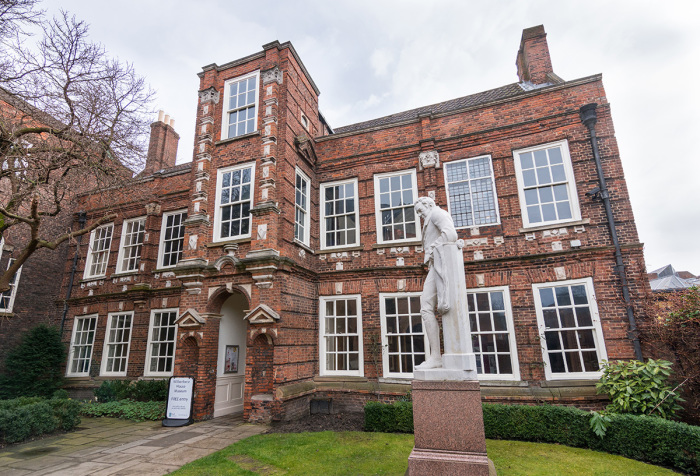
A remarkable discovery has been made in the University of Chester’s archives: four early 19th century letters, including two written by prominent abolitionist William Wilberforce, have been unearthed during an alumni archive project.
The letters were addressed to the Rev. Henry Raikes, a key religious figure who served as Chancellor of the Diocese of Chester and was a founder of what would evolve into the University of Chester.
Wilberforce, best known for his relentless efforts to end the British transatlantic slave trade, wrote to Raikes in 1830 from his home in Highwood Hill, Middlesex.

Subscribe to get daily/weekly email with the top stories (plus special offers!) from The Christian Post. Be the first to know.
In these letters, Wilberforce outlined plans to construct a chapel near his estate - a vision that sadly never materialised during his lifetime.
A further pair of letters, written in 1808 and 1809, were also uncovered.
One was sent to Henry Raikes by his uncle, and the other to Thomas Raikes, Henry’s father and a former Governor of the Bank of England.
The discovery of these valuable letters came during a project overseen by the University of Chester’s Alumni Assistant Amy Hultum, in collaboration with Dr Lisa Peters.
The initiative aims to organise, preserve and showcase decades’ worth of alumni relics and archival materials that had been stored away.
Ms Hultum expressed: “We did not expect to come across anything like these letters but we were very excited to find them in a box amongst our University collections.”
The Head of Humanities, Cultures and Environment, Dr Hannah Ewence, commented: “These two letters, between William Wilberforce and his friend and fellow Evangelist Henry Raikes, were written towards the end of Wilberforce’s life.
“By 1830, failing health had caused Wilberforce to retire from politics and from London life, moving from Grove House in Brompton to the relative tranquillity of Mill Hill, Middlesex (now in the north London borough of Barnet).
“It was from Highwood House that Wilberforce sat down to pen his replies to Raikes, then Chancellor of the Diocese of Chester.
“Their affectionate correspondence ranged across personal, political and spiritual matters, and offers a sense of the paternal regard in which Wilberforce held the younger man.
“Certainly, his efforts to persuade Raikes that he should take a living as curate in Mill Hill because he knew him to be ‘a promotor of peace and good will’ reveals that Wilberforce’s reputation for showing great care for friend and stranger alike had not diminished, even in his final years.”
Wilberforce’s legacy is well known - his campaign helped pass the Slave Trade Act of 1807, which banned the buying and selling of slaves inside the British Empire.
Though the complete abolition of slavery would not occur until the year of his death in 1833, these letters offer rare insight into his personal convictions and late-life aspirations.
One of his final hopes - to establish a chapel at Mill Hill — remained unfulfilled while he was living there.
Financial hardship, brought on by his son’s failed business, forced Wilberforce to leave Highwood House.
He spent his remaining years living with family and friends. Ironically, the chapel he envisioned was finally dedicated the year he died.
This article was originally published at Christian Today
News Source : https://www.christianpost.com/news/william-wilberforce-historic-letters-found-in-university-archives.html
 Your post is being uploaded. Please don't close or refresh the page.
Your post is being uploaded. Please don't close or refresh the page.





